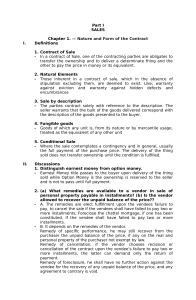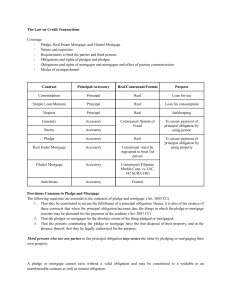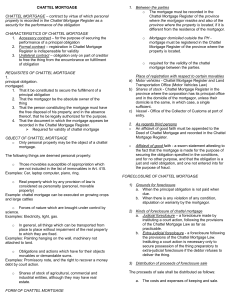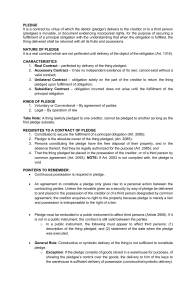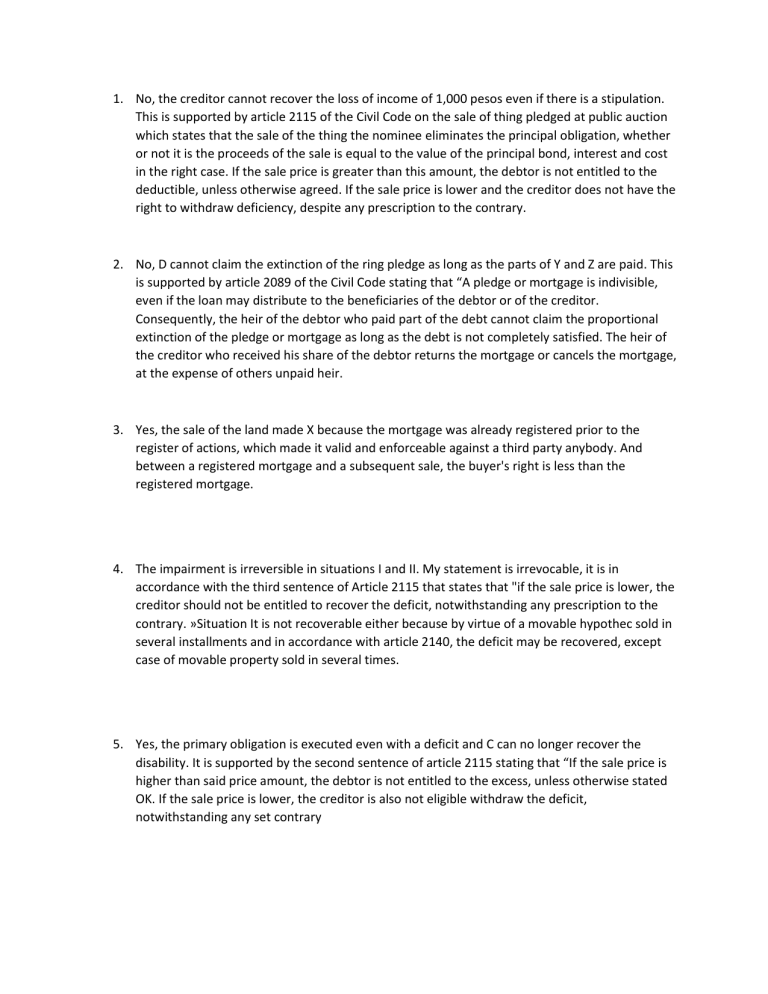
1. No, the creditor cannot recover the loss of income of 1,000 pesos even if there is a stipulation. This is supported by article 2115 of the Civil Code on the sale of thing pledged at public auction which states that the sale of the thing the nominee eliminates the principal obligation, whether or not it is the proceeds of the sale is equal to the value of the principal bond, interest and cost in the right case. If the sale price is greater than this amount, the debtor is not entitled to the deductible, unless otherwise agreed. If the sale price is lower and the creditor does not have the right to withdraw deficiency, despite any prescription to the contrary. 2. No, D cannot claim the extinction of the ring pledge as long as the parts of Y and Z are paid. This is supported by article 2089 of the Civil Code stating that “A pledge or mortgage is indivisible, even if the loan may distribute to the beneficiaries of the debtor or of the creditor. Consequently, the heir of the debtor who paid part of the debt cannot claim the proportional extinction of the pledge or mortgage as long as the debt is not completely satisfied. The heir of the creditor who received his share of the debtor returns the mortgage or cancels the mortgage, at the expense of others unpaid heir. 3. Yes, the sale of the land made X because the mortgage was already registered prior to the register of actions, which made it valid and enforceable against a third party anybody. And between a registered mortgage and a subsequent sale, the buyer's right is less than the registered mortgage. 4. The impairment is irreversible in situations I and II. My statement is irrevocable, it is in accordance with the third sentence of Article 2115 that states that "if the sale price is lower, the creditor should not be entitled to recover the deficit, notwithstanding any prescription to the contrary. »Situation It is not recoverable either because by virtue of a movable hypothec sold in several installments and in accordance with article 2140, the deficit may be recovered, except case of movable property sold in several times. 5. Yes, the primary obligation is executed even with a deficit and C can no longer recover the disability. It is supported by the second sentence of article 2115 stating that “If the sale price is higher than said price amount, the debtor is not entitled to the excess, unless otherwise stated OK. If the sale price is lower, the creditor is also not eligible withdraw the deficit, notwithstanding any set contrary




